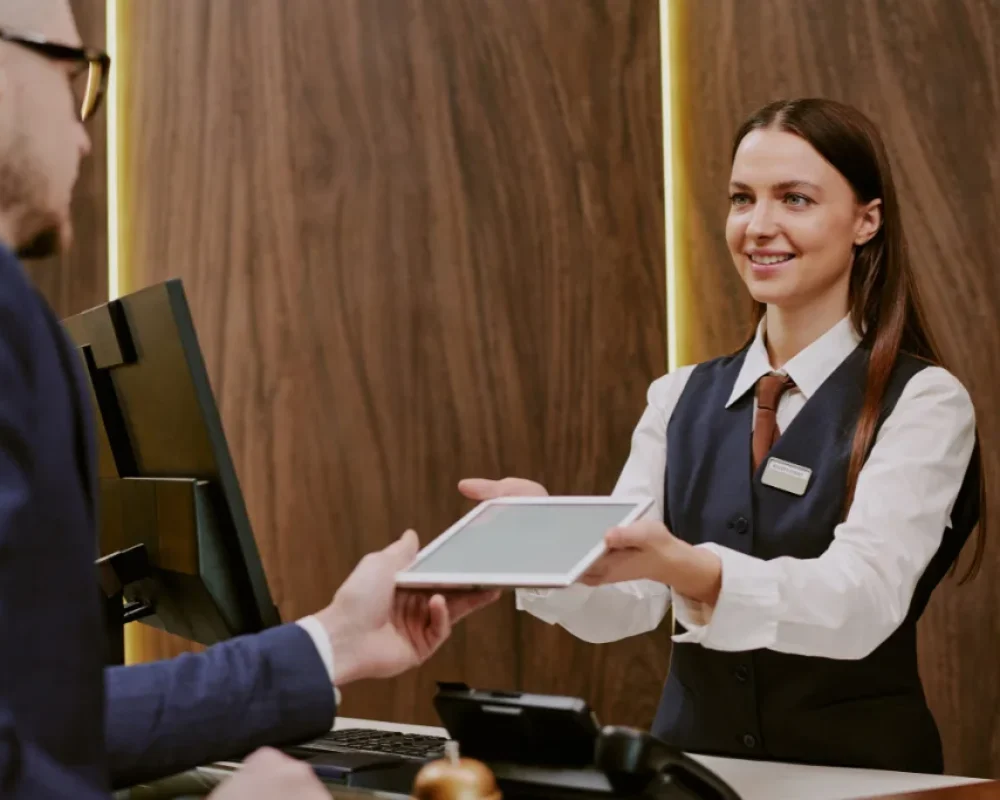In today’s digital-first world, guest data is one of the most valuable assets in hospitality. From the moment a traveler makes an inquiry until they check out, personal data is constantly exchanged — through online bookings, loyalty programs, contactless check-ins, restaurants, spas, and smart-room services.

Jinu Simon, Consultant at Processa – https://processainc.com Former Hotelier | Information Technology Professional |
While this data fuels personalized, seamless guest experiences, it also brings a critical responsibility: keeping that information secure. Protecting guest data is no longer just a technical necessity — it is a test of trust and a pillar of the brand promise.
Why Guest Data Security Matters
Studies and industry insights make it clear:
“Guests love personalized service, but they also want their privacy and data to be safe. Striking this balance builds trust, boosts repeat business and keeps your brand ahead of the competition.”
Infosys BPM Report (Reference – https://www.infosysbpm.com/offerings/functions/travel-hospitality/insights/documents/balancing-data-privacy-with-personalisation-in-hospitality.pdf?utm_source )
“High-profile breaches at major hospitality chains show the industry’s ongoing cybersecurity risks, making strong security measures, staff training, and proactive threat detection essential to protect guest data.”
Digital Defynd Case Studies (Reference – https://digitaldefynd.com/IQ/hotel-cybersecurity-case-studies/?utm_source)
“Third-party vendors often handle guest data outside the hotel’s direct control. Under regulations like GDPR, CTDPA, and PDPL, even accidental lapses can lead to heavy fines.”
HospitalityNet Opinion (Reference – https://www.hospitalitynet.org/opinion/4127132.html)
“A strong culture of security not only prevents risks but drives loyalty and competitive advantage. Guest privacy must be a priority across all operations.”
TrainingHotels Insight (Reference – https://traininghotels.com/2025/03/15/the-importance-of-guest-privacy-and-data-security-in-hospitality/)
Key Challenges in Guest Data Protection
1. Handling Large Volumes of Sensitive Data
Hotels capture everything from names and passport numbers to payment details and personal preferences. This makes them prime targets for cybercriminals. A single breach can expose thousands of records, causing reputational and financial damage.
2. Data Is Everywhere
Guest data flows through reservation platforms, payment terminals, property management systems, spa and restaurant outlets, and even IoT devices. Securing every link in the chain is a major challenge, especially when systems are siloed or outdated.
3. Third-Party Risk
Booking engines, payment gateways, cloud services, and marketing partners all process guest data. Weak security at a vendor can compromise data — even if the hotel’s own systems are robust. Third-party due diligence is essential, including risk assessments, contractual data protection clauses, and compliance monitoring.
4. Human Factor & Temporary Staff
Receptionists, housekeepers, and F&B staff interact with guest information daily. Untrained or temporary staff may accidentally leak data or be tricked by social engineering attacks. Building a privacy-aware workforce is as important as having technical safeguards.
5. Legacy Systems & Patch Gaps
Older systems lacking encryption or MFA are easy targets for attackers. Failure to apply timely patches and upgrades opens doors for exploitation. Modernizing IT infrastructure and prioritizing patch management are crucial steps.
6. Wi-Fi & Smart Room Devices
Guests expect fast Wi-Fi and smart amenities — but unsecured networks or IoT devices can provide attackers with a back door. Regular security assessments and firmware updates are critical to prevent data leakage.
7. Global Privacy Compliance
Hotels hosting international guests must comply with GDPR, CCPA, PDPL, and other regional privacy regulations. This requires standardized processes and governance that balance legal compliance with guest convenience.
8. Escalating Cyber Threats
Phishing, ransomware, and fake calls targeting hotel staff are increasing. Attackers impersonate managers or partners to trick employees into revealing sensitive data. Simulated phishing campaigns and response drills can strengthen resilience.
9. Incident Response Gaps
Despite operating 24/7, many hotels lack a structured incident response plan. Quick containment and timely regulatory notifications are essential to limit impact and avoid penalties.
Final Reflection: Data Privacy as Part of the Guest Experience
Protecting guest data is not just an IT issue — it is a core part of delivering trust, comfort, and safety. A data breach does more than trigger fines or lawsuits; it undermines the relationship that hospitality brands work hard to build.
Hospitality operators must adopt a holistic, continuous improvement approach that includes:
- Secure processes and documented policies
- Regular internal audits and compliance reviews
- Comprehensive staff training and awareness campaigns
- Vendor due diligence and contract enforcement
- Investment in modern, secure technology
Guest privacy should be treated like a premium amenity — an invisible service that builds loyalty and keeps your brand trusted. After all, keeping personal data safe is as important as offering a comfortable bed or a warm welcome.




